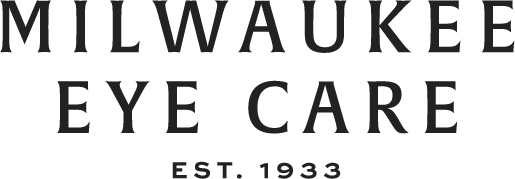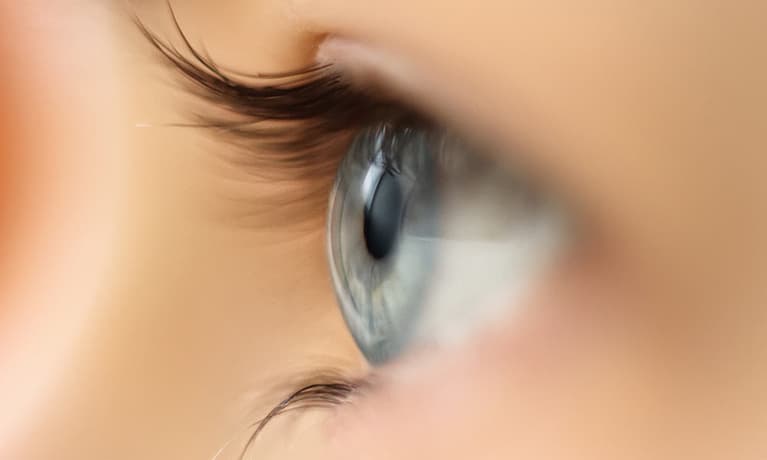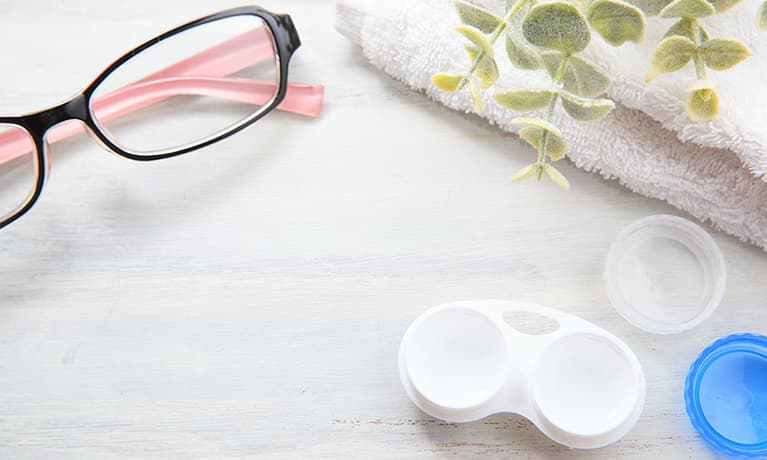Eye Care Services
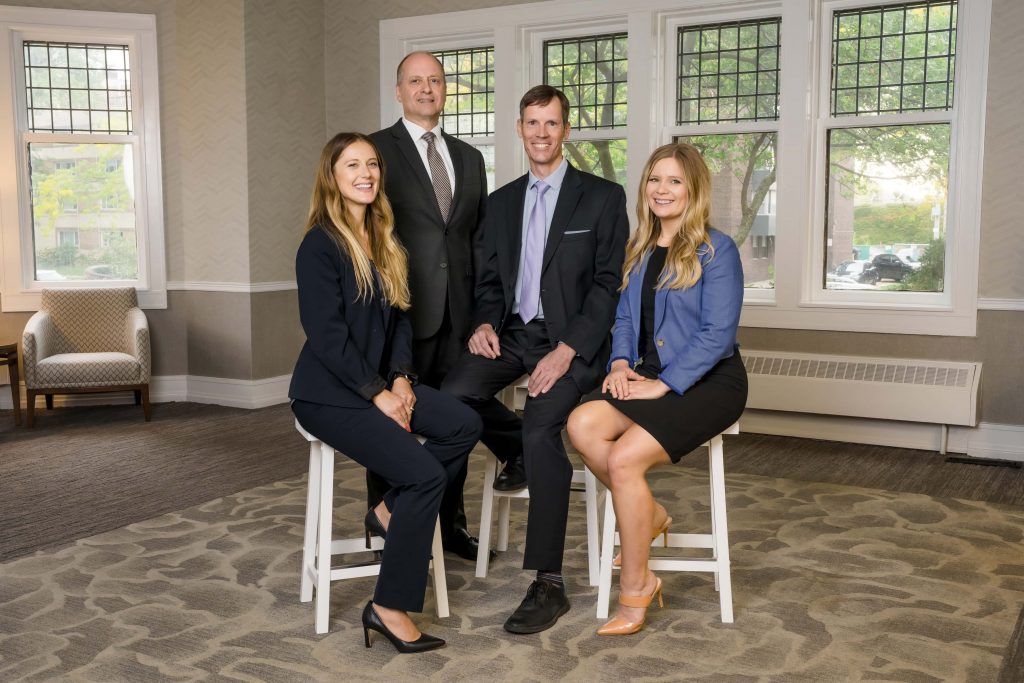
Milwaukee Eye Care is pleased to be a fully comprehensive eye care practice. Regular eye examinations are necessary to test your vision and the health of your eye to protect one of your most precious senses – your sight. We encourage you to schedule an eye examination and look forward to seeing you.
Routine Eye Care
Regular eye examinations are an important part of general health maintenance. Too often, people put off having eye exams because their vision seems satisfactory, not knowing that in doing so they are putting their vision and health at risk. The eye is truly the window to one’s body since changes in the retinal blood vessels can show other medical problems such as diabetes, high cholesterol, and hypertension.
See Below for Common FAQs on Routine Eye Care

Please bring your ID, insurance cards, and a list of current medications to your appointment. If you wear glasses, we also ask that you bring your current pair to your visit.
During the COVID-19 Pandemic Milwaukee Eye Care is doing everything we can to ensure the safety of our patients and limit exposure to others. We have increased social distancing standards and do our best to keep patients out of our waiting rooms. Please fill out patient registration forms before your visit and bring them with you to your appointment. You may also email the forms to csa@milwaukeeeyecare.com with your appointment date as the subject line.

We test your vision both with and without glasses and contact lenses, check your peripheral vision, color vision screening, and perform a refraction. The refraction uses different lenses to determine your eye’s best visual acuity and finds the best eyeglass prescription.
We perform a test of the muscles that control the position of the eyes and their movement which can detect problems in the brain which affect the eyes.
We screen for glaucoma with a gentle instrument that measures the pressure inside the eye. We then carefully examine your eyelids, cornea, and front of the eye. Following this, we dilate the pupils with drops. These dilating drops take some time to work. Use this time to sit back and relax for 15-30 minutes. Finally, after dilating the pupils, we check the lens, the back chamber of the eye, the retina, and optic nerve.

We use dilating drops to dilate (or widen) your pupil, which helps your doctor see into the back of your eye and helps diagnose any potential problems or conditions. When your pupils are dilated they let in more light and you can experience blurred vision, sensitivity to lights, and difficulty focusing. Sunglasses are used to ease some of these symptoms.

Please visit our Insurance page to see a list of vision plans we accept. We do our best to help per-determine if we will bill your exam as a routine eye exam, or a medical eye exam, but we recommend you contact your insurance company directly.
Children’s Eye Exams in Milwaukee & Brookfield, Bayside, and Franklin
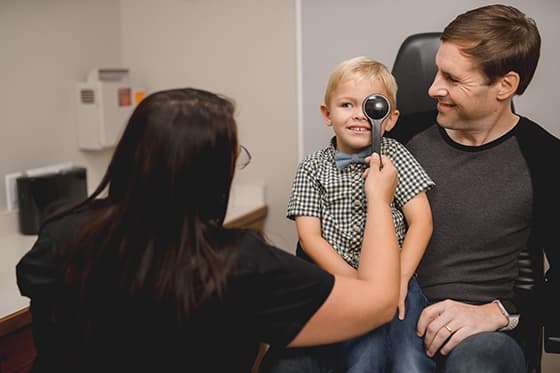
Imagine being a child who has difficulty seeing a smart board, reading a book or computer, taking part in sports, or any other normal childhood activity. Going through life with a vision problem can be very frustrating, especially if no one knows about it. Often, children have vision problems of which they themselves are not even aware; they only know that they are “not good at” certain tasks, like reading, writing, or sports. For many of these children, the solution is often as simple as a comprehensive eye exam by an eye doctor.
Are Vision Issues in Children Common?
About 10 to 15% of school-aged children in the United States suffer from an undetected vision impairment, according to the American Foundation for Vision Awareness. Most pre-school and school vision screenings detect only the most obvious vision problems, so a good deal of childhood vision problems go undiagnosed. A child with vision problems may squint, complain of headaches, or may not complain at all. The child may avoid tasks that are visually challenging. Too often, wee see children with vision-related learning problems misidentified as having social or behavioral problems or even learning disorders.
What Does A Children’s Eye Exam Consist of?
When we examine your child’s eyes, we perform a complete vision and eye health examination. We test the need for glasses and assess your child’s depth perception and ability to coordinate the efforts of the two eyes. We dilate your child’s eyes and look for any ocular disease.
How Often Should My Child’s Eyes Be Examined?
Most children are recommended to have eye exams every one to two years, depending on their case. As children grow, so do their eyes, sometimes resulting in poor focus and a need for glasses.
Typically a child gets their first exam at around six months of age. This is done to ensure that both eyes are developing vision typically because it is not uncommon for a problem called amblyopia to go undetected until it is too late to be remedied. Amblyopia is a condition where one eye does not develop sharp focus. Typically this results from a significant difference in refractive error (one eye is much more far-sighted or much more near-sighted than the other) or from strabismus (eye turn). Patching therapy can be used to rehabilitate an amblyopic eye and avoid permanent vision loss.
Around age two or three, children are much more responsive & able to respond to the picture chart used to measure vision in younger children. If all else goes well and the child does not need glasses, they might still need them in the future.
The eye care professionals at Milwaukee Eye Care provide thorough, comprehensive eye exams and will take the time to explain your diagnoses and discuss your treatment options with you.
